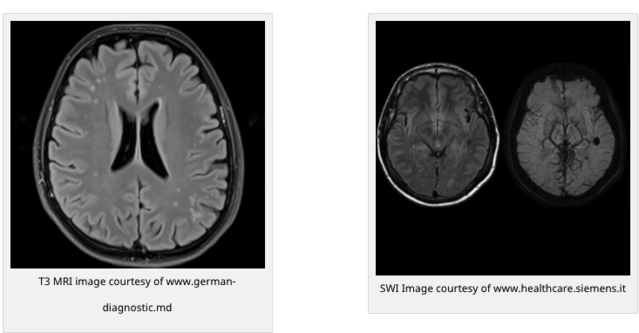Traumatic Brain Injury
Accidents Happen: What to Do After a Traumatic Brain Injury
Advice from professional and personal experience.
Posted November 19, 2021 Reviewed by Tyler Woods
Key points
- Do not rely on doctors to advise on what to do after an accident or incident resulting in traumatic brain injury or concussion.
- Know which tests and evaluations are admissible in a court of law if you are involved in a litigation after traumatic brain injury.
- Understand the difference between a neuropsychologist and a forensic neuropsychologist.
Traumatic brain injury (TBI) includes any damage that occurs when an outside force, such as a bump, blow or jolt to the neck or head injures the brain. The most common causes of traumatic brain injury involve motor vehicle accidents, falls, assaults, recreational activities, blast injures, or sports injuries.
Traumatic brain injury (TBI) or concussion, which is a mild traumatic brain injury (mTBI), can cause a host of neurological and behavioral issues that affect one's quality of life. These issues may include changes to one's behavior, mental state, or cognition. Symptoms range from mild to severe and may be temporary or ongoing. Examples of these symptoms include memory loss, insomnia, depression, anxiety, headaches, inability to focus, problems with speech, poor judgment, anger, and cognitive impairments.
If a person suffers a traumatic brain injury due to the negligence of another, such as an automobile accident, slip-and-fall, or an incidence of violence, they may take legal action.
Litigation advice
As a neuropsychologist and a forensic neuropsychology consultant, I am familiar with the specific tests and assessments which are admissible in a court of law. Many doctors do not know this information. Therefore, it is important to be your own advocate. After seeking medical attention, a survivor should undergo certain assessments and brain imaging. Obtaining baseline testing is especially critical if someone is involved in litigation.
I strongly recommend these steps to anyone who suffers a traumatic brain injury, including a concussion.
- Be seen and evaluated by your primary care physician.
- Be seen by a neurologist who has training in and an understanding of traumatic brain injury and concussions. Not all neurologists have training in this area, so do some research.
- Be evaluated by either a neuropsychologist or a forensic neuropsychologist, depending on legal issues.
Suppose your injury is not the result of an accident that would involve legal action. In that case, a neuropsychological test and report should be done.
What is the difference between a neuropsychologist and a forensic neuropsychologist?
A neuropsychologist is a psychologist who specializes in understanding the brain-behavior relationship. They understand the brain and nervous system structure and conditions related to behavior and cognitive function. A clinical neuropsychology report includes the test, results, and suggestions for types of treatment.
Forensic neuropsychology is a branch of neuropsychology. A forensic neuropsychologist applies neuropsychological science and methods within a legal context. Assessments conducted by a forensic neuropsychologist would be similar to one performed by a clinical neuropsychologist, however their report is not for clinical use, rather for presentation in a court of law, and is composed quite differently. A forensic neuropsychological report documents the types of assessments completed along with the results detailing any injuries or deficits in the brain to present in court. In addition, the report will include research demonstrating the validity of the assessments for evaluating specific symptoms. The forensic neuropsychology report includes recommended treatments, much like the clinical neuropsychology report, however, it will also show the research supporting the efficacy of the treatment modalities. Further, these findings would be used to determine damages and compensation for the victim.
Brain Imaging
There are two types of brain imaging recommended by a forensic neuropsychologist.
- Susceptibility-Weighted MRI (SWI): SWI is a type of MRI that can access the brain’s structure and gray matter. It produces an enhanced contrast magnitude image which is exquisitely sensitive to venous blood, hemorrhage, and iron storage. This scan is the international brain assessment for TBI.
- Diffusion Tensor Imaging (DTI): DTI is a type of scan that evaluates the white matter which connects different areas of the brain. It can access the structure of the nerves and wiring of the brain. The DTI scan can help determine the extent of the damage from an injury to the brain.
SWI and DTI are more detailed than magnetic resonance imaging (MRI), an imaging modality using magnetic field and computer-generated radio waves to create detailed images, and computed tomography (CT) scan, which uses x-ray and computer technology to produce a 3D image of soft tissues and bones.

Brain Function Scans
There are two methods to determine how the brain is functioning. One is called a quantitative electroencephalogram (qEEG) and the other is a single-photon emission computed tomography (SPECT) scan. Both are highly effective, however, a court of law accepts the results of a qEEG.
-
Quantitative Electroencephalogram, qEEG, is a diagnostic tool measuring electrical activity in the form of brain wave patterns. Sometimes referred to as “brain mapping,” qEEG shows how the brain is functioning and is used to diagnose conditions such as TBI, depression, sleep conditions, memory issues, and more.
My Experience
In October 2020 I was involved in a car accident. While stopped at a crosswalk, awaiting a pedestrian to cross, my vehicle was rear-ended. My neck snapped and I instantly saw stars and became extremely nauseous. At the hospital, doctors ordered the appropriate tests and diagnosed me with a concussion, my fifth.
Over a year later, I am still dealing with an inability to recall information, debilitating muscle weakness, and extreme fatigue. These ongoing symptoms are referred to as post-concussion syndrome (PCS).
My Treatment Plan
- Neurofeedback twice per week for healing and normalizing brain function
- A brain-healthy diet
-
Oily fish: Promotes the uptake of nutrients into brain cells, decreases inflammation and raises levels of serotonin.
-
Anti-inflammatory foods: Foods high in folate have been proven to aid energy and memory, and decrease the likelihood of depression. Whole grains, like quinoa, buckwheat, amaranth, and millet are also anti-inflammatory. These carbohydrates can boost levels of serotonin, a “feel-good” chemical and neurotransmitter in the brain.
-
Vitamin D: Low levels of vitamin D have been associated with low mood, low cognitive performance, as well as depression. Foods that are both anti-inflammatory and rich in vitamin D include fatty fish, fortified food products (like almond milk), eggs, and mushrooms.
-
Probiotics: Preliminary research has shown a link between a healthy gut microbiome and the brain. I include servings of anti-inflammatory, probiotic-rich foods like kefir, yogurt made from goat’s milk, sauerkraut, miso, kimchi, and kombucha to encourage colonization of healthy gut bacteria.
-
- Whole food supplements and other supplements, such as Omega 3 and CQ10
- Exercise, which, for me, is currently limited to walking
- Chiropractic and physical therapy
I will continue to treat my post-concussion syndrome (PCS) symptoms in hopes that I can once again resume living as I did before October 2020. I sincerely hope this post has provided you with some help and hope of regaining your life again.




